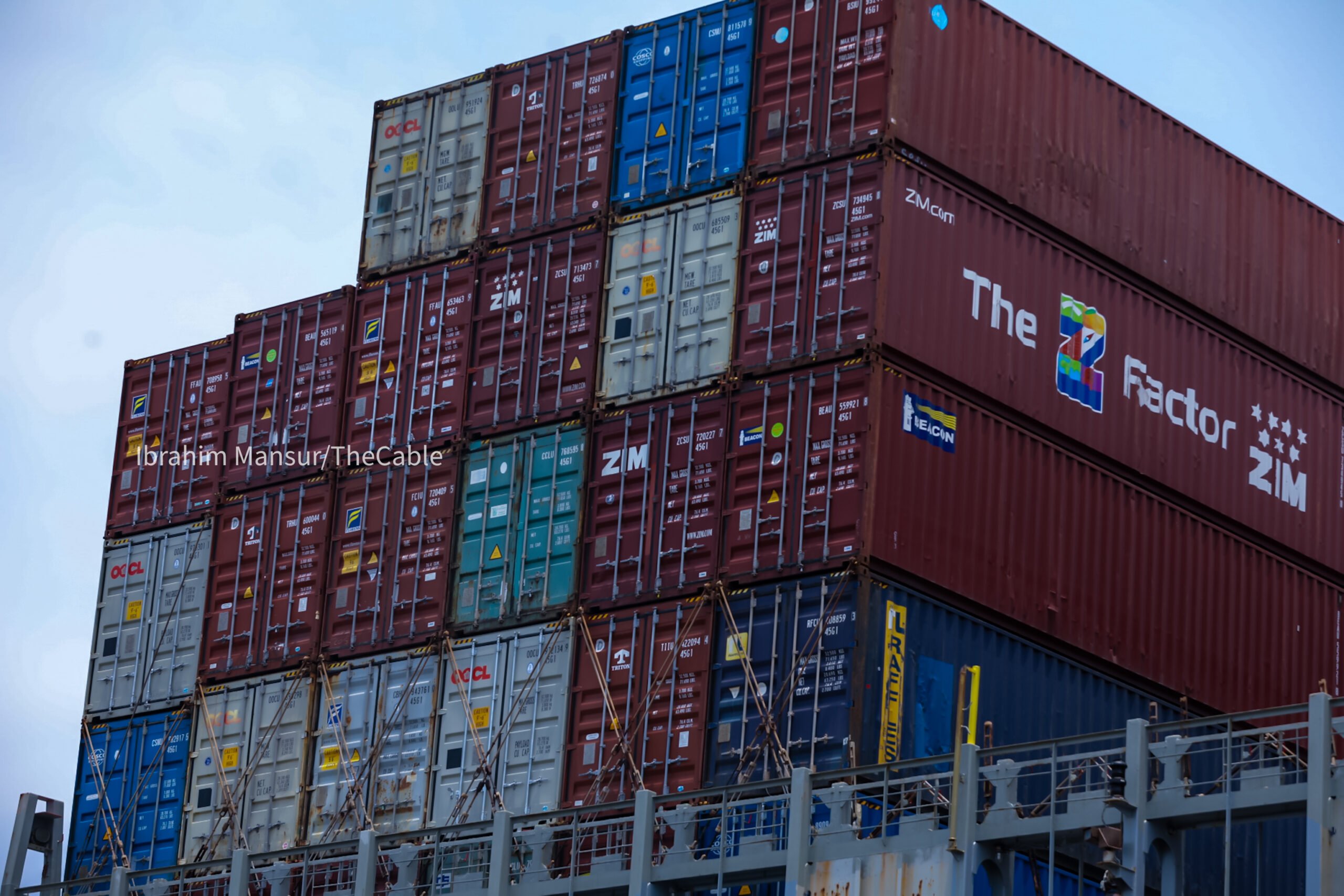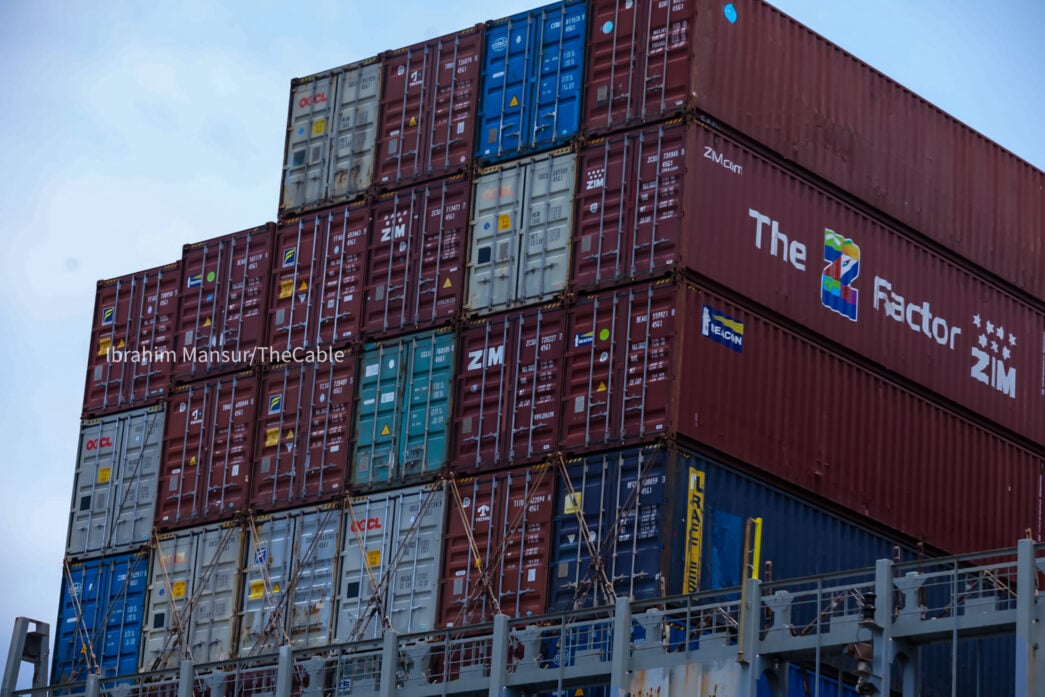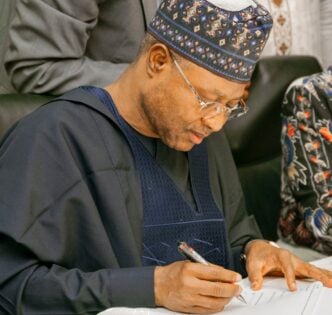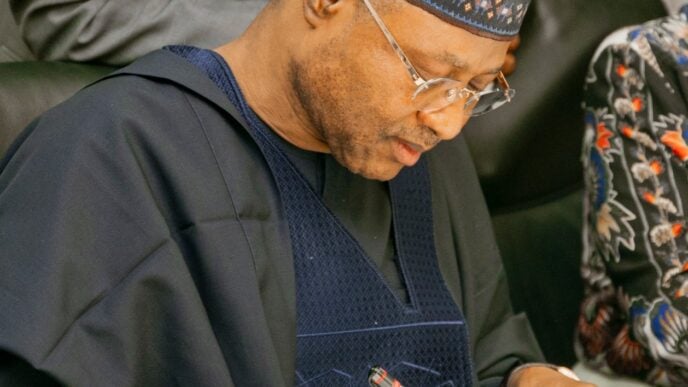BY TIMI OLAGUNJU
Right now, ministry of finance and customs are caught between a rock and a hard place. On one hand, revenue is under immense pressure, with oil earnings faltering and non-oil collections struggling to keep up with ambitious targets. On the other hand, the private sector is groaning under the weight of unpredictable, arbitrary levies that raise the cost of doing business, fuel inflation, and erode competitiveness. The recent suspension of the 4% Free on Board (FOB) levy on imports is a wake-up call: we cannot keep tinkering at the edges of an outdated system.
The truth is that both the old system (1% CISS fee + 7% port surcharge) and the new 4% FOB levy are problematic. The old structure was complex and often arbitrary, while the new levy was blunt and inflationary. Neither addressed the deeper inefficiency that plagues Nigeria’s trade facilitation regime. I posit that, in this particular circumstance, what Nigeria needs is a smarter, fairer, and more technologically grounded approach to customs revenue.
A progressive hybrid levy may be part of the solution. Essential imports such as food, medicines, and raw materials should remain exempt in the short to mid-term, while luxury and non-essential goods can bear higher costs. This ensures fairness and shields consumers from unnecessary price shocks. A modest flat processing fee per consignment, transparently linked to service improvements such as reduced clearance times, also makes sense. Businesses will pay when they can see the value for fees: faster clearance, fewer bottlenecks, and predictable processes.
The truth is also that customs must look beyond levies. Customs revenue is leaking not because Nigerians do not import enough or that the fees are not enough, but because inefficiency, corruption, duplication, and opacity drain the system. Here, technology offers a pathway. Artificial intelligence and blockchain can help automate valuation, flag inconsistencies in import declarations, and create tamper-proof audit trails.
Advertisement
Fully (not partially) mandate that all customs revenues flow through the Treasury Single Account (TSA) and publish a real-time, port-by-port dashboard of collections, waivers, and refunds, audited quarterly by an NEITI-style independent multi-stakeholder body. Fiscal analytics models can also help the Ministry and Customs forecast revenue trends more accurately and identify sectors where compliance gaps are the highest.
There is also room to diversify revenue sources beyond customs. Expanding excise duties on import of products with known health risks (alcohol, tobacco), deepening VAT collection on e-commerce and digital trade, and incentivising local production will reduce the over-reliance on border taxes, and may help achieve the revenue goal of over N10 trillion. A revenue strategy that leans on digital compliance, rather than levies, will both stabilise collections and foster competitiveness.
Critics may ask whether such reforms are realistic in an environment of tight budgets and entrenched interests. I would argue that precisely because budgets are tight, we cannot afford waste or duplication; and precisely because interests are entrenched, only a transparent, rules-based, digital pipeline can outlast personalities.
Advertisement
The suspension of the 4% FOB levy should not be treated as another policy U-turn or policy somersault. It should be the start of a serious rethink about how Nigeria funds its fiscal needs without strangling trade. As someone who works at the intersection of technology and governance, I believe efficiency, not new taxes, must be the central driver of fiscal and monetary reform, especially when it relates to taxes and levies. Suspending the 4% FOB levy should not be the end of the conversation; it should be the start of a smarter one.
Olagunju is a lawyer and policy expert specialising in emerging technologies and economies. He is an Edward S. Mason fellow at Harvard University and an Internet Society fellow. He is a partner at The Timeless Practice (TTP), Lagos and senior advisor at US-Africa Bridge, Arlington. X: @timithelaw
Views expressed by contributors are strictly personal and not of TheCable.












